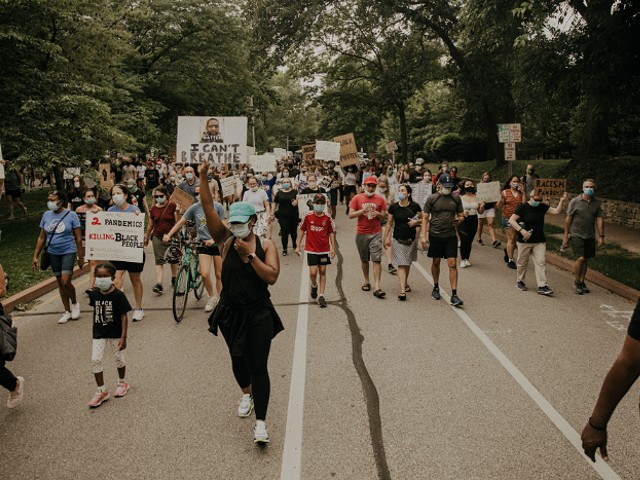
COURTESY KENNEDY MITCHUM
Nerinx Hall High School alum Kennedy Mitchum has persuaded Merriam-Webster to update its definition of "racism."
We know it's been a rough few weeks in St. Louis, but listen to this: Kennedy Mitchum, a 22-year-old Nerinx Hall High School alum, has literally changed the way the Merriam-Webster dictionary defines racism.
The current dictionary definition of racism is "a belief that race is the primary determinant of human traits and capacities and that racial differences produce an inherent superiority of a particular race."
About a week ago, Mitchum went on the Merriam-Webster website and wrote a complaint asking them to expand their current definition of racism.
After a few days of emailing an editor at Merriam-Webster, and receiving some irritating backlash from the company, Mitchum convinced them that their current ways of defining racial terms are excluding black points of view. After the board of Merriam-Webster agreed to begin researching different, more detailed definitions of racism, Mitchum was thanked for her persistence to demand change.
That surprising development was first reported by KMOV.
Mitchum says that in the next few months there should be a revised definition of the word racism in the dictionary. In addition, other words that define racial inequalities will also be altered and expanded to include a larger systematic view of what Mitchum called "anti-blackness."
After a few days of emailing an editor at Merriam-Webster, and receiving some irritating backlash from the company, Mitchum convinced them that their current ways of defining racial terms are excluding black points of view. After the board of Merriam-Webster agreed to begin researching different, more detailed definitions of racism, Mitchum was thanked for her persistence to demand change.
That surprising development was first reported by KMOV.
Mitchum says that in the next few months there should be a revised definition of the word racism in the dictionary. In addition, other words that define racial inequalities will also be altered and expanded to include a larger systematic view of what Mitchum called "anti-blackness."
Mitchum tells the Riverfront Times that the current definition of racism has made it difficult for her to argue with her counterparts about the ingrained and systematic nature of racism in this country.
"Basically, I just felt like there's a disconnect," she says. "A lot of people just think that racism is surface level and just anti-black. But really anti-blackness is deeply ingrained in so many different societal structures that we all participate in. It's definitely a whole system of oppression."
Mitchum says that the current definition does not include these systematic structures.
She says "especially with everything that's going on and the current climate, it's not only racist police officers. The whole system is racist."
She says "especially with everything that's going on and the current climate, it's not only racist police officers. The whole system is racist."
Mitchum feels that in her conversations with friends and colleagues, they weren't understanding the true meaning of racism as she has experienced as a black woman living in Florissant.
Going forward, Mitchum asks St. Louisans to look to their own communities and take concrete action against the inequalities their black neighbors, co-workers and friends experience. Ask yourself how you can contribute to change. In Mitchum's case, she used her voice, but there are other avenues that people can take to support their black counterparts such as protesting, donating and speaking out against racist rhetoric.





